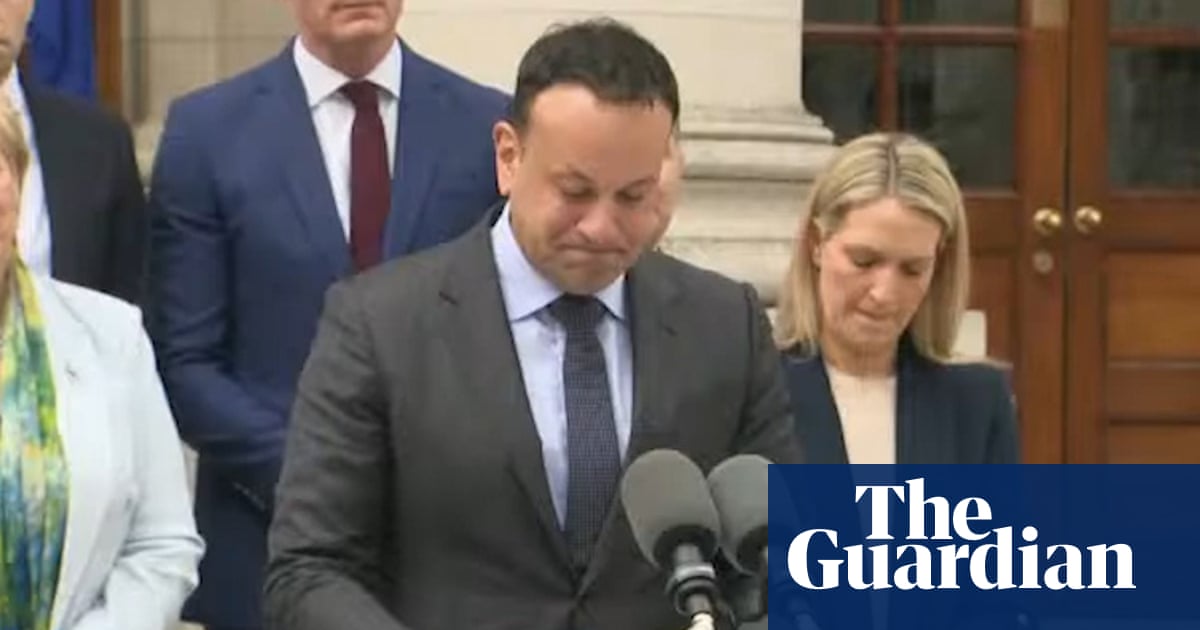
The leader of the Social Democratic and Labour party (SDLP), the once dominant party of Irish nationalism in Northern Ireland, has announced he is stepping down after nine years in the job.
Colum Eastwood, 41, the MP for Foyle, told a news conference in his native Derry that the time was right for someone else to take on the role and named his fellow party MP Claire Hanna as his preferred successor.
Eastwood said he would continue to be an active MP and to build the case for a new Ireland. The party, which opposed Brexit, believes the partition of Ireland is coming to an end and is campaigning for a “shared home place for all our people”.
“Now is a big moment for a change for a new Ireland,” Eastwood said. “And I want to make a contribution to that.”
He is the party’s sixth leader and the fifth since the signing of the Good Friday agreement in 1998.
His resignation comes just eight weeks after he saw his Westminster majority reduced from about 17,000 to just over 4,000.
For decades the SDLP, which was co-founded by the Nobel peace prize laureate John Hume, was seen as the moderate left-of-centre voice of Irish nationalism in Northern Ireland during the Troubles.
But in 2001, three years after the Good Friday agreement, it started to lose ground to Sinn Féin which is now by far the dominant voice of nationalism.
Although Eastwood was widely praised for his own articulate media performances, the SDLP lost four seats in the 2022 Stormont assembly election, meaning it had to go into opposition because it did not have the numbers to take part in the mandatory coalition.
Last year the party lost 20 seats in local elections. It now has 39.
Acknowledging the SDLP’s declining electoral fortunes, Eastwood told the news conference that “this is a difficult context for the middle ground”.
Possible successors to Eastwood include Hanna and Matthew O’Toole, the party’s leader in Stormont.
Hanna recently said she so opposed Eastwood’s plan in 2019 to enter a partnership with Fianna Fáil south of the border that she considered resigning and forming a new party. The plan came to nothing.
O’Toole previously worked as a civil servant in the Treasury and was a Downing Street spokesperson.
Brian Feeney, a former SDLP councillor and nationalist commentator in the Irish News, said in a recent column that it was time for the party to “find a role commensurate with its size and accept it’s a small party with patchy ageing bourgeois support in niche areas across the north with no USP (unique selling point).”
Coincidentally, the Ulster Unionist party (UUP), the dominant unionist party at the time of the Good Friday agreement, is also looking for a new leader after Doug Beattie announced he was stepping down.
The UUP has also seen its fortunes fade; in its case the Democratic Unionist party (DUP), once led by Ian Paisley, is now the leading voice of unionism.
It is expected that the new leader of the UUP will be Mike Nesbitt, a former television news presenter and current health minister in Northern Ireland. He previously led the party between 2012 and 2017.
During that time, when the UUP and the SDLP were overshadowed by the DUP and Sinn Féin, he said: “Vote me, you get Colum. Vote Colum, you get me.”












